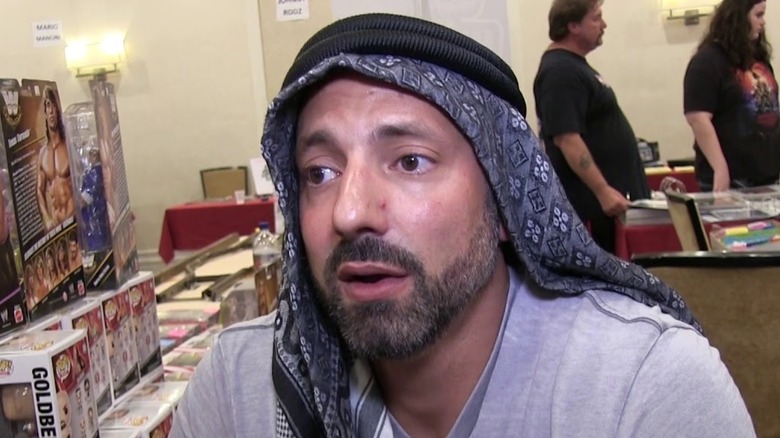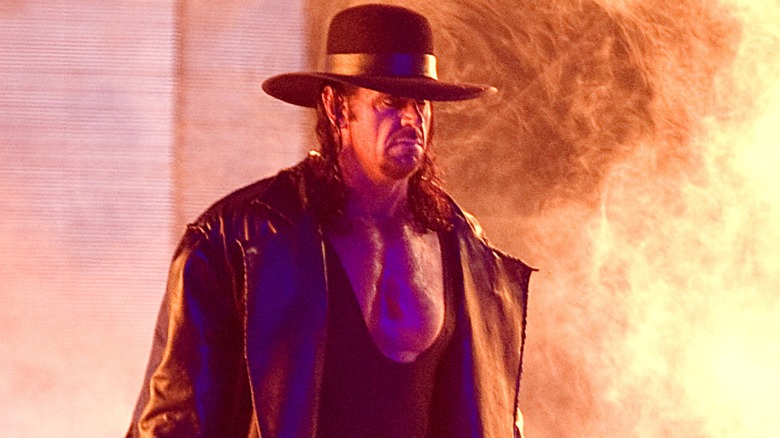Former Muhammad Hassan On WWE Gimmick, Its Issues & When He Knew It Wouldn't End Well
In the mid-2000s, Marc Copani would become one of the most divisive wrestlers after debuting in WWE as Muhammad Hassan, the worst of Arab-American stereotypes packed into a wrestling gimmick. Now, Hassan is now telling his story about that experience.
In an appearance on "The False Finish," Hassan discussed how difficult it was to portray a Muslim character — despite not being Muslim himself — and how he learned to empathize with their plight after experiencing discrimination while traveling, dressed in character. While he admitted the character was able to get heat, eventually Hassan started to feel the character was going away from its origins and to a place that was no good.
"I think that the one thing I disagreed with is when the character went from, in my opinion, speaking the truth about current conditions in the United States, and how Islamic people in general were treated based on what happened on 9/11, he [then] started becoming more of a caricature of an Islamic man," Hassan said. "More radical, more indoctrinated. I started doing that a lot more ... I do remember that when we moved to 'SmackDown,' I had a big issue, and I voiced that issue of the fact that we're moving to a network program where I felt would have a lot more limitations of how far we can push the bar."
"And we're taking the character from being a born American, just like you, and you treat me differently, and I'm going to make you pay for it to someone who became more of a caricature of what was happening with fundamental Islam," he continued. "I did not agree with that. And ultimately, that was the downfall of the character. It was really towing that line and being way too close to reality."
Muhammad Hassan Disagreed With Undertaker Angle
Eventually, Hassan reached the point of no return in July 2005 with an angle that saw Hassan summon five masked men to attack Undertaker with piano wire. The angle would air unedited and after the London bombings. It would subsequently lead to Hassan being removed from TV and released from WWE just a few months later. Hassan was not in favor of the idea then or now, although it wasn't until a later conversation with someone high up in WWE that he realized his career was in trouble.
"I didn't agree with it, I didn't like it," Hassan said. "When it all happened that morning, I really didn't understand what was going on. I guess I really didn't realize it was still going to be aired ... I don't recall having any feelings about it one way or the other. I remember finding out after the fact that it was aired with a crawler, that kind of disclaimer that kind of went out at the bottom of the screen."
"When it happened, I remember knowing this was a big deal ... And I kind of had a feeling that I ... I remember I asked Johnny Ace, who was head of talent relations at the time — I was looking at homes in Syracuse," he added. "And I remember telling him 'I'm about to buy a house.' And he said 'Don't buy the house.' 'Sh*t. That's kind of when I knew this probably wasn't going to end well for me."
If you use any of the quotes in this article, please credit "The False Finish" and provide a h/t to Wrestling Inc. for the transcription

